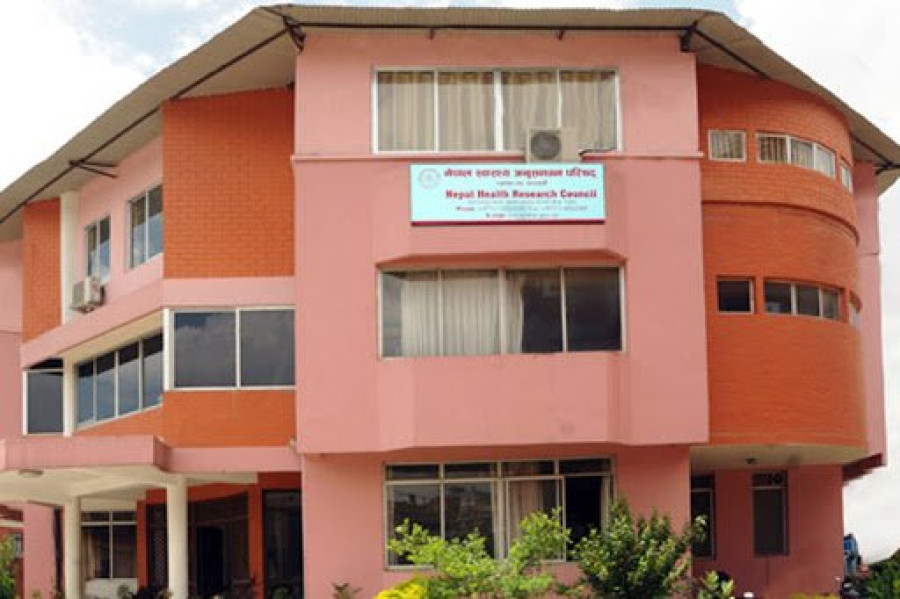Health
Nepal to study safety and efficacy of Covid-19 vaccines
Safety and efficacy study tells whether or not the vaccines have been working and how effectively.
Arjun Poudel
Nepal Health Research Council is preparing to carry out a safety and efficacy study of the Covid-19 vaccines being used in the country.
Although Nepal was among the first countries to launch a vaccination drive against Covid-19, it has not yet conducted a safety and efficacy study of the vaccines that are being administered to its citizens.
“We had planned to carry out this study long ago, but due to the change in the government and budget, we could not start earlier,” Dr Pradip Gyanwali, member secretary of the Council, told the Post. “We now plan to start the study at the earliest.”
Nepal has been using Covid-19 vaccines developed by the University of Oxford and pharmaceutical giant AstraZeneca manufactured in India, Japan and the UK, Vero Cell vaccine developed by China’s state-affiliated Sinopharm, and Johnson and Johnson’s single-shot Janssen vaccine.
A few weeks ago, the Ministry of Health and Population unveiled the preliminary results of a nation-wide seroprevalence study, which showed that two-thirds (68.6 percent) of the population of the country have Covid-19 antibodies.
Officials were quick to say that the detection of antibodies in a large number of people, both vaccinated and unvaccinated, should be taken positively. They also claimed that a large-scale outbreak of Covid-19 is unlikely in the immediate future.
Experts say that the safety and efficacy study is different from the seroprevalence study and tells whether or not the vaccines have been working and how effectively.
“Seroprevalence study only checks if the respondents have antibodies to Covid-19 but does not tell if the antibodies work against the possible coronavirus infections in future,” Dr Dipesh Tamrakar, an assistant professor at the Kathmandu University, who served under the Department of Community Medicine at Dhulikhel Hospital, told the Post.
Doctors say that a neutralising antibody test is required to know whether or not the vaccines have been working and how long the antibodies developed from the vaccination work.
“Safety and efficacy study following the vaccination should have been done long ago as neutralising antibody levels are studied in these tests,” Dr Sunita Gautam, a molecular biologist, who works as research and development manager at Shikhar Biotech Pvt Ltd told the Post. “It is very important to check if the vaccine has been working properly or not.”
Neutralising antibodies are antibodies responsible for defending cells from pathogens. They are produced naturally by the body as part of its immune response, and their production is caused by both infection and vaccination against infections.
According to the World Health Organisation, available scientific data suggest that in most people, immune responses remain robust and protective against reinfection for at least six to eight months after first infection (the longest follow up with strong scientific evidence is currently approximately eight months).
Individuals with mild or asymptomatic infections tend to have lower antibody levels than those with severe infections. Some studies have suggested that waning of antibody levels occurs within several months after the first infection in some individuals.
If the neutralising antibodies or functional antibodies are checked, it will tell whether or not people are protected against the possible infection of the coronavirus in future.
“If the neutralising antibodies have not developed, we need booster shots,” added Gautam. “Neutralising testing service is available within the country.”
Several countries, including the United States, have decided to give a third dose as a booster shot to those with compromised immunity.
The government has been working to inoculate the maximum number of people at the earliest, without knowing if the vaccines have been working properly or not.
So far, 5,833,938 people(over 19.44 percent) have taken their first dose and 5,198,193 (around 17.32 percent) have been fully vaccinated against SARS-CoV-2 that causes Covid-19.
Nepal so far has received a total of 13,357,590 doses of Covid-19 vaccines. Of them, 4,422,740 doses were AstraZeneca type vaccines, 7,400,000 doses were Vero Cell, and 1,534,850 doses were the Janssen vaccine produced by Johnson & Johnson.




 11.84°C Kathmandu
11.84°C Kathmandu















